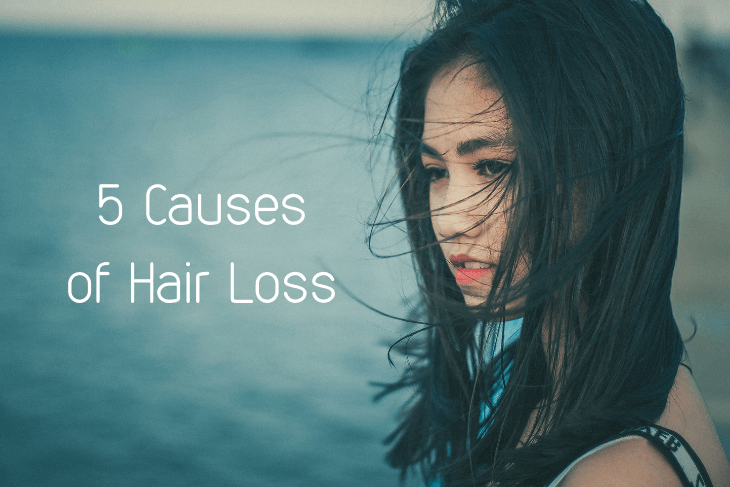5 Causes of Hair Loss
Hair loss is a sensitive topic for anyone who has experienced it. Some people can identify why they are experiencing hair loss, while it’s a mystery for most others. Many factors can contribute to hair loss, including, but not limited to: diet, stress levels, and autoimmune disorders. Let’s dive into some of the causes of hair loss, how to prevent, combat, and potentially, reverse the effects.
1. Hormonal Imbalance
Often times, women notice hair loss after going through significant hormonal changes. This can be caused from pregnancy, childbirth, menopause, or a thyroid problems. Hair loss can sometimes be a side-effect from the use of certain birth control pills. While hair loss usually returns from six to nine months after these problems are resolved, it often requires treatment.
2. Iron Deficiency/Anemia
Iron is necessary to producing hair cell proteins. When there is an iron deficiency in the body, it can be one of the causes of hair loss because the body isn’t producing enough hemoglobin. This makes it difficult to carry oxygen to your cells that can stimulate hair growth.
3. Stress
Emotional stress is one of the biggest causes of hair loss. While physical stress is more likely to cause hair loss, emotional stress can have an impact as well. Examples of highly stressful situations include: getting fired from a job, getting divorced, losing a loved one, as well as financial or family stressors. Increased stress levels can lead to increased androgen levels which can cause hair to fall out. To combat this, seek out mental health treatments, such as therapy and/or meditation. And, remember, exercise is one of the easiest and cheapest ways to reduce stress and increase the “feel good” hormones, naturally. Reducing your stress will allow your body to be more healthy, overall.
4. Dramatic Weight Loss
Weight loss, whether intentional or unintentional, can cause hair loss. Your body is going through a major physical change and hair loss is usually just temporary in this case. If you are planning on losing weight, make sure your body is getting enough protein and minerals. Specifically, Zinc is an important mineral for hair growth. If you are struggling with an eating disorder, be aware that it will affect the hair, and many times, those effects are long-term.
5. Medication Side Effects
Medications and drugs are one of the most prevalent causes of hair loss. Some drugs can interfere with the natural hair cycle at various stages. The hair grows in three phases: anagen, catagen and telogen. The anagen phase is the initial phase of new hair growth, which lasts an average of 3-5 years. There is a transitional period of about 10 days, referred to as the catagen stage, while the follicle prepares for the resting stage, which is known as the telogen phase. From acne medications to birth control, from steroids, to antibiotics and chemotherapy, there are many drugs that can result in hair loss.
The most common drug-induced hair loss is telogen effluvium. This is when your hair falls out too early during the resting phase, causing temporary loss. You will notice 30% – 70% more loss than normal on a daily basis if affected. The second most common is anagen effluvium. Because this is occuring during the growth phase, you will notice longer-term loss as well as hair thinning. This can affect areas of the body beyond the head, such as eyebrows and eyelashes.
No matter what the cause of hair loss is, there are ways to fight back and potentially regrow lost hair. The most effective treatment is Hair Follicle Rejuvenation Procedure™, which is non-invasive, natural way to regrow hair. This treatment uses stem cell cytokines to trigger hair growth and has worked for people who suffered from alopecia, male pattern baldness, hereditary hair loss, and more. If you’d like to learn more about the causes of hair loss or ways to regrow hair, contact Misti Barnes for a free consultation
